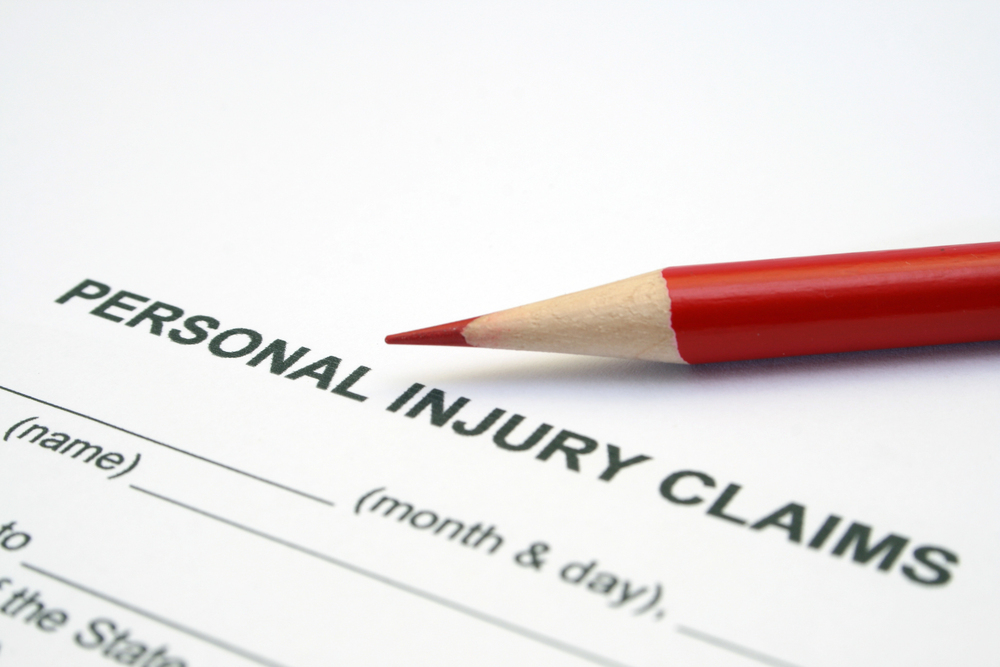Now Reading: Recoverable Damages in a Personal Injury Claim
-
01
Recoverable Damages in a Personal Injury Claim

Recoverable Damages in a Personal Injury Claim
Some unexpected expenses aren’t precisely surprises; you expect your air conditioning unit to need replacing at some point, and the same applies to your vehicle. Eventually, something’s going to break and this means an unexpected repair bill.
These expenses are a part of life and you take a deep breath and figure out how you’re going to pay the additional bills. Expenses stemming from an accident are a little different. These should be avoidable costs.
However, there are recoverable damages in a personal injury claim. The key is figuring out which ones apply to your insurance claim.
Types of Damages Often Recoverable in a Personal Injury Claim
Before we get started looking at potential recoverable damages, it’s important to note that every personal injury claim is different.
Your claim may include all of the following damages or only a few. You should also know you can only claim losses that apply directly to your accident. If you list non-applicable damages, you may be guilty of committing insurance fraud.
This can not only result in an automatic claim denial by the insurance company but you may also be facing criminal charges. With that being said, here are some of the common damages included in personal injury claims. Damages or losses from an accident are typically divided into three categories, economic, non-economic, and punitive.
Economic Damages
If you can’t claim any economic damages you probably don’t have grounds for filing a personal injury claim. This doesn’t discount your non-economic losses, only highlights the importance of economic damages.
Claims that only list non-economic damages generally move to the lawsuit stage, which means your claim heads straight to civil court.
Your economic damages are tangible, which means the losses have a defined monetary value. You can look at bills, receipts, and estimates to determine the value of these damages, and this also makes it easy to calculate the value. You simply add up the expenses.
Your economic damages typically include any medical costs relating to the accident, including exams, testing, diagnosis, surgeries, and prescriptions. Your rehabilitation therapy, if necessary, can also be covered. If long-term care is required, this counts as economic damage.
Most injury claims aren’t limited to medical expenses. Economic damages can also include your property repair or replacement costs. You may also be able to claim lost wages if your injuries prevent you from returning to work. If you’re unable to return to work or are forced to accept a lower-paying position due to your injuries sustained in the accident, your claim can also include lost future earnings.
Before you can list any economic loss on an insurance claim, you’ll need to provide supporting documentation. For medical expenses, this means supplying copies of your health records. Lost income requires pay stubs and other financial statements like bank account information. Your property damage claim should include all bills, receipts, and estimates.
Non-Economic Damages
Economic damages are standard on most accident insurance claims. Your economic losses are often what prompt you to engage with the at-fault party’s insurance. Your non-economic damages are just as crucial, unfortunately, they’re also harder to prove and evaluate.
So, what are non-economic damages? These are intangible losses that typically include your pain, suffering, and mental anguish. Loss of life enjoyment is another commonly named non-economic damage. So, how do you place a price on something that’s personal and only holds value to you?
Since you don’t have any bills or receipts to work with, determining the value of non-economic damages requires a little creativity. Thankfully, the courts and insurance companies recognize this difficulty and allow you to fall back on one of two methods.
You can use either the per diem or multiplier methods. Both are accepted by the courts and insurance companies. The per diem method takes your average daily wage and multiplies it by the number of days your injuries caused pain and suffering. So, if your injuries caused you to miss work for 30 days, you take this number and multiply it by your daily pay rate,
The multiplier method takes the total of your economic damages and multiplies this by a number assigned to denote your pain and suffering. The number typically ranges from 1.5 to 5. The higher the number, the greater your pain and suffering.
Punitive Damages
Some personal injury claims are eligible for punitive damages. These aren’t losses you can claim on an insurance form. Only a judge or jury can award punitive damages and this is rarely done. Punitive damages are typically only awarded in cases of gross negligence.
For example, a bar knowingly allows a patron to leave the premises intoxicated and the driver is involved in a vehicle accident that results in a fatality. Most states have caps on punitive damage amounts, which means that your award can’t exceed the cap set within it. To learn more about punitive damages in your state, it’s a good idea to talk to a personal injury attorney.
Recoverable Damages in Wrongful Death Claims
Hopefully, this is information you never need to use. If you’re considering filing a wrongful death claim it means you’ve lost a loved one due to someone else’s negligence.
You’re restricted in who can file a wrongful death claim. Typically, only surviving spouses, children, parents, siblings, or the executor of the deceased’s estate is allowed to file a claim for wrongful death benefits.
Some of the damages you can list in your claim typically include funeral and burial expenses. If the deceased has outstanding medical bills due to the accident, you can also include this economic loss. Non-economic damages can also apply in wrongful death claims like loss of companionship and potential future earnings.
If gross negligence is the cause of the accident, surviving loved ones may also be eligible for punitive damages.
Ensuring You Recover Your Damages From an Auto Accident
The expenses from an accident can quickly become financially overwhelming—but fortunately, you may be able to file a personal injury claim to recover those costs. Before starting the claim process, it’s a good idea to consult with an attorney.
A personal injury lawyer can help make sure that you’re accounting for all your applicable damages, maximizing your chances of receiving the compensation you deserve.










